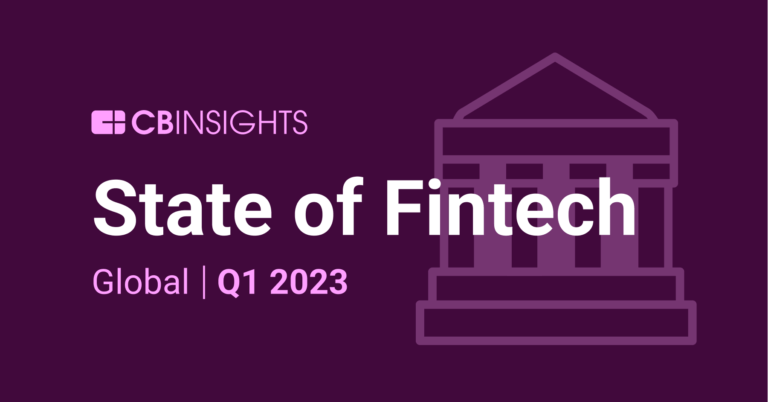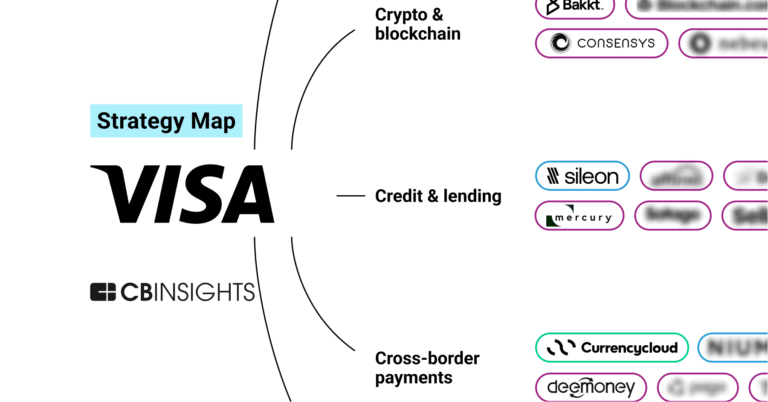
Carbonplace
Founded Year
2021Stage
Seed | AliveTotal Raised
$45MLast Raised
$45M | 3 mos agoMosaic Score The Mosaic Score is an algorithm that measures the overall financial health and market potential of private companies.
+10 points in the past 30 days
About Carbonplace
Carbonplace is a carbon credit transaction network that connects buyers and sellers of carbon credits through their banks. It uses distributed ledger technology (DLT) to provide a settlement network for carbon credits, ensuring the transfer of ownership of credits and payment. It was founded in 2021 and is based in London, U.K.
Missing: Carbonplace's Product Demo & Case Studies
Promote your product offering to tech buyers.
Reach 1000s of buyers who use CB Insights to identify vendors, demo products, and make purchasing decisions.
Missing: Carbonplace's Product & Differentiators
Don’t let your products get skipped. Buyers use our vendor rankings to shortlist companies and drive requests for proposals (RFPs).
Research containing Carbonplace
Get data-driven expert analysis from the CB Insights Intelligence Unit.
CB Insights Intelligence Analysts have mentioned Carbonplace in 2 CB Insights research briefs, most recently on Apr 18, 2023.

Expert Collections containing Carbonplace
Expert Collections are analyst-curated lists that highlight the companies you need to know in the most important technology spaces.
Carbonplace is included in 4 Expert Collections, including Green Fintech.
Green Fintech
22 items
Companies in this collection connect businesses and/or consumers with the carbon offset market, primarily through fintech solutions.
Decarbonization Tech
333 items
Companies developing tech to decarbonize operations.
Blockchain
5,862 items
Companies in this collection build, apply, and analyze blockchain and cryptocurrency technologies for business or consumer use cases. Various industries include financial services, trade finance, supply chain, enterprise tech, consumer and retail, and healthcare.
Fintech
5,143 items
Latest Carbonplace News
Mar 29, 2023
03/29/2023 | 12:36am EDT Message : *Required fields A $70bn reallocation of capital to 2030 to help Australia transition to a net-zero economy is affordable and achievable, as banks help to mitigate risk and governments pitch in to support new technology until it becomes competitive, according to a senior NAB banker. NAB group executive, corporate and institutional banking, David Gall, said there were lessons to be learnt from NAB's 20-year history in funding renewable energy. "So, 20 years ago we had PPAs (power purchase agreements, or long-term renewable energy contracts to contribute to the energy transition) and you had government subsidies," Mr Gall said in a panel discussion at the AFR Banking Summit in Sydney on Tuesday. "They were particularly important, and will be again with hydrogen, maybe sustainable aircraft fuel and other areas, as the cost curve comes down and they become more competitive. "There is a role for banks in structuring and mitigating the risk, but also for the government to step in at the early stages." ANZ head of sustainable finance Katharine Tapley agreed, saying most feasibility studies of hydrogen concluded that significant government support was required. "So it's really a matter of how fast we want to go," Ms Tapley said. "It becomes about acceleration and then competitiveness, both from a domestic perspective in terms of investments being made here, and in terms of all the capital that we've got here in our superannuation funds being deployed here or offshore." Bank of America executive Adrienne Bloom told the summit that the global transition to carbon neutrality, of which the offsets market is projected to play a key part in the early years, is forecast to absorb about $US150 trillion, or $US5 trillion a year for the next 30 years. Ms Bloom, head of Asia Pacific financial institutions and corporate banking, said Bank of America was committed to mobilising $US1.5 trillion in sustainable finance, of which $US1 trillion would be in environmental finance. The bank, she said, had already surpassed $US400bn, and would invest the remainder "as soon as we can". A further prerequisite in the transition, according to Australian Sustainable Finance Institute chief executive Kristy Graham, was the rapid development of an Australian sustainable finance framework, or taxonomy, to guard against greenwashing and support the flow of capital into the transition. ASFI's final taxonomy recommendations, released in a report on Monday, set out the sustainability credentials for a particular activity, asset or financial product, enabling all participants in the financial system to use the same terminology. While the work was unique to Australia, it drew from other jurisdictions, in particular the European Union. Ms Graham said development of a science-based taxonomy was key, as was the need international credibility and clarity in relation to transition categories. Mr Gall said he was concerned about greenwashing and its impact. "We're very conscious about any commitment we make to the market about any of the sustainability-linked facilities or green-based facilities," he said. "We want to make sure we're putting enough robustness or assurance into the process to ensure it's beyond challenge. "It's like that saying you have to 'slow down to ultimately go fast'. "I think all of us in the industry have to make sure that whatever sustainability-linked product we're marketing which relates to the transition will stand the test of time in terms of the scrutiny, now and into the future. "That probably means we need to be a little conservative, but the integrity and trust that will create in the longer term will be worth its weight in gold." A settled taxonomy would also be helpful to address stakeholder concern about the finance sector's exposure to fossil-fuel companies. The issue, he said, was often examined in a binary way. "You're either green and not funding any fossil-fuel industries, or you're funding fossil fuels," Mr Gall said. "The concept of managing through a transition becomes a very difficult one to not just explain; it's also like an inconvenient truth for some of our stakeholders. "I think it's still going to be a challenge but the taxonomy really helps to explain why you can't automatically flick a switch or turn off a tap and go from fossil fuel finance to totally renewables." Mr Gall said a credible market for carbon credits was vital in the transition to a carbon-neutral economy. Amid concern about the integrity of some offsets, which are purchased by companies with hard-to-abate emissions, he sketched an optimistic outlook for Australia as a producer and user of "high-quality, trusted offsets" through its forestry and agricultural industries. "The other thing is, when you talk about carbon credits, it's a global phenomenon; it's not regional," he said. "This is where the scaling of voluntary carbon markets will see a lot more inter-operability between regional markets that exist, with different carbon prices in different parts of the world. "I think we'll see a more universal price which will be a great maturing of that commodity." NAB and eight other banks are founding investors in London-based Carbonplace - a platform which is designed to settle carbon-credit transactions and due to go live before the end of this year. The credits fund verified projects such as reforestation, revegetation and improved forest management to help improve or prevent the release of greenhouse gas emissions into the atmosphere. Voluntary carbon markets (VCMs) like Carbonplace passed through $US1bn in turnover in 2021, accounting for about five per cent of the offsets market with the regulated or compliance segment holding the rest. The dominance of the compliance segment is expected to fade as VCMs expand their market share. Attachments
Carbonplace Frequently Asked Questions (FAQ)
When was Carbonplace founded?
Carbonplace was founded in 2021.
Where is Carbonplace's headquarters?
Carbonplace's headquarters is located at One Silk Street, London.
What is Carbonplace's latest funding round?
Carbonplace's latest funding round is Seed.
How much did Carbonplace raise?
Carbonplace raised a total of $45M.
Who are the investors of Carbonplace?
Investors of Carbonplace include BNP Paribas, Sumitomo Mitsui Banking Corporation, NatWest, Itau Unibanco, NAB Ventures and 6 more.
Discover the right solution for your team
The CB Insights tech market intelligence platform analyzes millions of data points on vendors, products, partnerships, and patents to help your team find their next technology solution.
